The Zone of Interest Review: Glazer’s searing Holocaust drama will burn itself into your memory
Jonathan Glazer’s forbidding, masterful lookback holds vital lessons for today
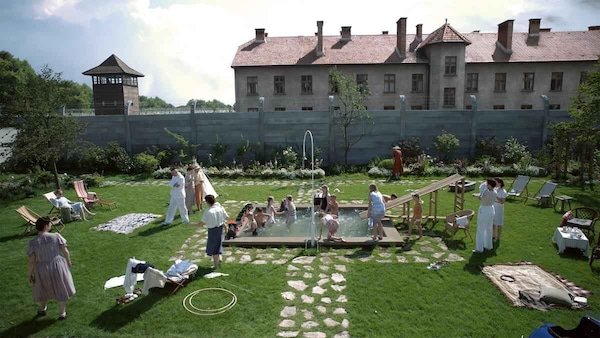
Last Updated: 02.48 PM, May 10, 2024
Story: Loosely based on Martin Amis’ eponymous novel, the film revolves around the Hoss family who live right next to a concentration camp in Nazi occupied Poland. Rudolf Hoss (Christian Friedel), the commandant of the Auschwitz camp had planned this ‘dream life’ with his wife, Hedwig (Sandra Huller) for themselves and their five kids. They enjoy their time in the house, while sounds of gunfire and shouting keep rolling in from beyond the camp wall.
Review: Jonathan Glazer’s film opens to Mica Levi’s siren-like score. As the title slowly fades out over four minutes, we are left with no images on which to fixate our attention but the very first and most definitive suggestion of the film that a trail of sounds that will supersede almost everything else. Instantly, the film divides itself into something with two identities: one directly presented, the other lurking in the background that establishes its presence through Johnnie Burn’s sound design.
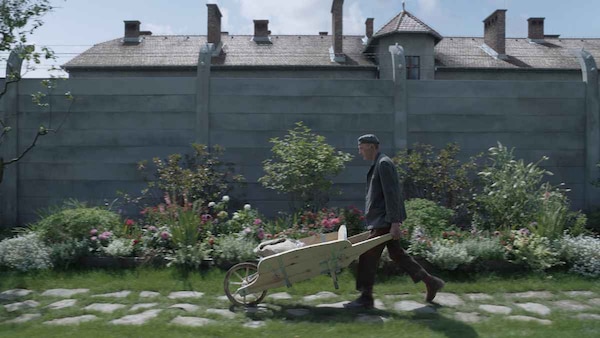
This is a film that lets our imagination wander wild with the little scraps it files our way. Glazer reposes trust in us to construct our own versions of what might be happening right across the concentration camp wall drawing from established histories and pre-existing representations. Everyday exchanges in the house play out in a low-key register in deliberate and stark contrast to the ghastly excesses unfolding beyond the wall. In an extraordinary feat of simultaneity, Glazer engineers a lull trickling in as well as a sharpening of our senses.
There is a calculated distance set between the characters and the viewer while minimising the gulf between the then and the now. Any intimacy of emotional association between the two is firmly denied. The characters aren’t diabolically exaggerated and turned into the usual kind of inflated monsters. They simply abet and collude in unimaginable horrors without batting an eye. The shocking levels of apathy on display, their blasé attitudes to moral and human implications of their crimes-all of it rings even more eerily and cruelly in today’s times. None of it is alien in the current moment when insanities like the siege and massacre of Palestinians have become disturbingly routine.
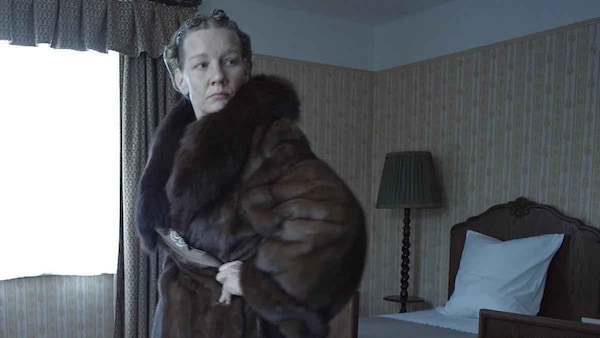
The central thesis of the film is the emotionless remove it places between characters and the violence in their vicinity. They’ve essentially learned to tune out the ambient sounds, all of which constantly drift in. It’s not so much a disconnect as it is a willing inurement to what all is going down at the camp. Hollers of the Hoss kids mingle with anguished shrieks of prisoners. The well-heeled friends of Hedwig discuss attending concerts and the material belongings they’ve got as steal from the prisoners. One of them mentions an acquaintance who took a liking to a dress despite it not being her size and ultimately declared she’d go on a diet. They share a hearty laugh over the anecdote. Meanwhile, SS officials deliberate on the planning of an incineration with a methodical matter-of-factness: “burn, cool, unload, reload”.
The overlay of sounds from the camp is a beast of its own, enlarging and undercutting the visuals that don’t stray much from the environs of the impeccably maintained Hoss house until the final section. In its contrapuntal straddling of images and auditory clues, The Zone of Interest achieves its terrifying power and confrontational honesty. As Hedwig tries out a shade of lipstick, we can hear not-so-distant sounds of lashing, whipping and tortured cries. In another scene, one of the kids is distracted from his toys by SS officers’ threatening to drown the prisoners over some slip-up they did. The Hoss kids scuttle about in the house pool and Hedwig lazes in the lounge, all while smoke curls up from the camp chimney and pained shouts punctuate the air. Even though Rudolf ensures they don’t come across bones while swimming in the lake, kids find a way of sourcing and play with the false teeth of the victims. Ashes are used to fertilise the garden.
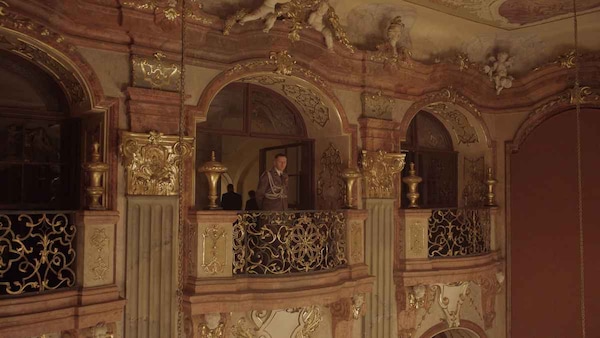
There are no gratuitous shots of suffering and misery. Glazer and his DP Lukasz Zal are too sophisticated as artists to indulge any of that. Instead, they offer a radical reorientation to much-abused approaches to handling such traumatic history. The closest to a visual depiction the viewer gets of the imprisoned Jews is a sneaky glimpse through half-obscuring grassy stalks of them being paraded when Rudolf is out with his teenage son on a hunting expedition. A flash of striped uniforms and a slew of cursing orders momentarily registers before Rudolf hurries his kid to move ahead.
The sterility in characterisation is juxtaposed with the vivid sheen on the dream house the couple has built for their family. The film has a pellucidity of look that can take a regular viewer aback who is otherwise habituated with the worn-out textures of period dramas. The sky looks uncannily bright and blue and the house gleams with a perfect newness. Hedwig takes great pride in the house whose design she has supervised. In a standout sequence, when she gives her visiting mother-in-law a tour of her lavish, vast garden, replete with a greenhouse and a gazebo, the latter admiringly calls it a paradise garden but she cannot conceal her discomfort at the sheer proximity of the camp. A dismissive Hedwig remarks they will plant more vines to cover the wall and hide it from plain view. With childlike glee and undisguised haughtiness, she reveals her husband refers to her as the ‘Queen of Auschwitz’. Then in a daring formal disruption, the redness of a flower in the garden bleeds out and fills the frame. A sudden vibrating, bellow-like snippet from Levi’s score hits lurchingly.
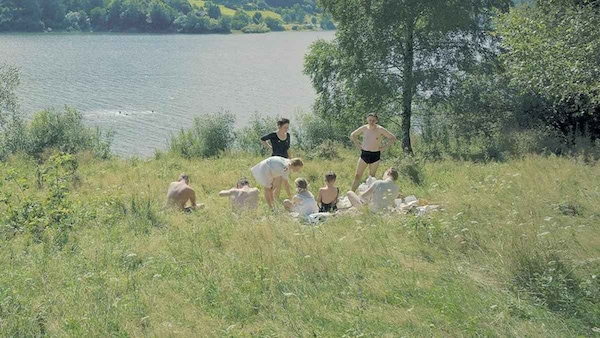
Verdict: Up for five Oscars, the Zone of Interest is a shattering, singularly vital work armed with Mica Levi’s purgatorial score that will haunt me forever. The film hurtles towards a bold, nifty leap in its ending that stares even harder at the viewer. Can we claim any moral distance from the atrocity of the past? One need only look around themselves for the answer.
Subscribe to our newsletter for top content, delivered fast.

